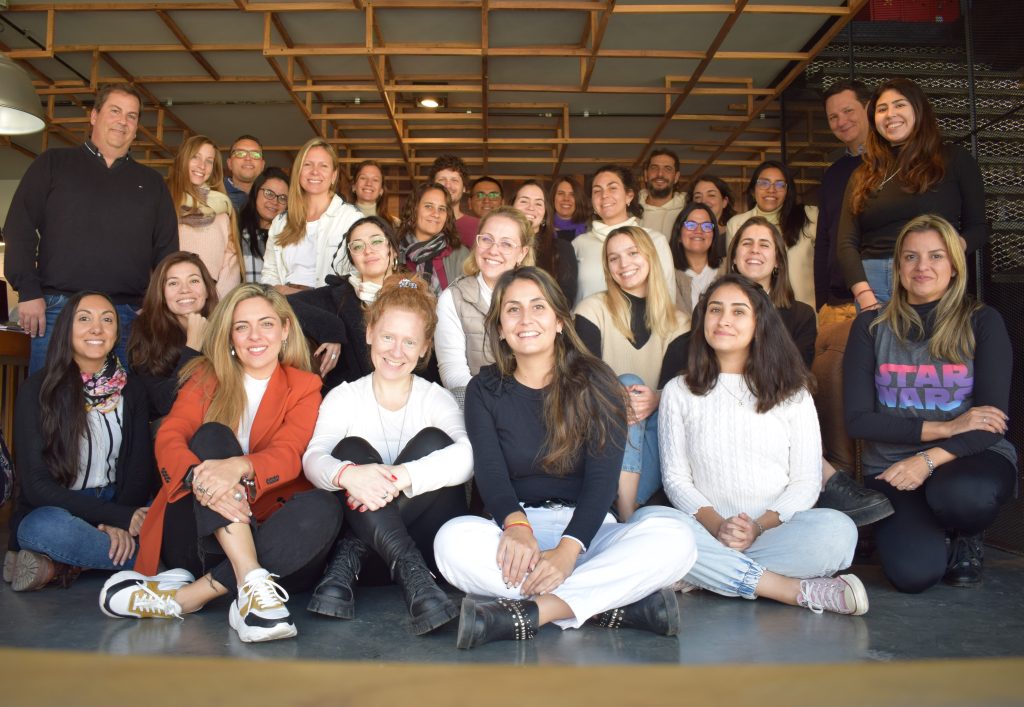
Guest article by our client Carolina Li Gambi from Stillman Translations, speaker at the Plunet Summit 2022
Continuous improvement is a long-term approach based on the idea of achieving incremental small changes to improve processes, services, and products. Sometimes, it’s not easy to implement as we are all being pulled by daily demands.
In this context, Stillman Translations asked themselves an important question: how to come up with good ideas even during the busiest time?

Stillman Translations is a cutting edge-multilingual communication provider that has been supporting some of the world’s leading brands for over 10 years. With headquarters in the Argentina localization production hub, they also have production centers in Egypt and Peru, with sales representatives in Canada, Brazil, and Argentina.
Where to start?
Adam Grant is an organizational psychologist at Wharton, and he investigates why we struggle to update our ideas and opinions and how we can get better at it. He shares a key insight to consider in this continuous improvement path:
“When people reflect on what it takes to be mentally fit, the first idea that comes to mind is usually intelligence. The smarter you are, the more complex the problems you can solve -and the faster you can solve them. Intelligence is traditionally viewed as the ability to think and learn. Yet in a turbulent world, there is another set of cognitive skills that may matter more: the ability to rethink and unlearn.”
So how can we introduce this insight into our companies? How does Stillman accomplish change and challenge minds? Their work is based on three pillars:
- Transparency – having open goals and needs
- Knowledge sharing – no closed doors
- Team involvement – “all for one and one for all”
Continuous improvement in practice
Plunet has been Stillman’s main Management System since 2016. All departments use it as a source of information to make decisions or to plan strategies. That’s why it’s so important to have a customized tool that adapts to each department’s needs.
To identify those needs, all team members need to be humble enough to accept that yesterday’s great ideas may not be useful today. This is a constant challenge to everyone’s egos! But it’s also the main reason that keeps the team flexible and ready to adapt to any scenario.
When Stillman needs to solve a problem or to come up with a new idea, they get together and practice collective thinking. This means analyzing a situation from many different points of view.
Stillman’s team is diverse, with people from different parts of the world and with different backgrounds. When facing a challenge in any department, they encourage each other to bring up the topic to the group.
In a troubleshooting session mainly carried out during the Executive Team Weekly Meetings, Stillman follows these steps:
-
-
-
-
-
-
-
-
- Introduce the topic
- Ask questions to get additional information and fully understand the issue.
- Explore different options – brainstorming
- Agree on actions or processes to test
- Assume ownership of the task
- Implement the solution
- Check if the solution worked in the following meeting
-
-
-
-
-
-
-
As such, the Plunet Gym is a “kindred heart” that follows a similar method: to provide information to the team and give a second thought to processes. This is why Stillman found in Plunet “a perfect partner, with a committed Support Team eager to work together to find new solutions”, said the President, Maria Carolina Li Gambi.
Diving into problem solving - the ‘Test’ property
Let’s look into a simple example. The Business Department needed to clearly identify the orders that involved Tests for New Prospects.
In the beginning, the company came up with the idea of flagging email messages and making a list in an Excel file for recording purposes. Of course, these flags didn’t work because it involved an individual’s inbox setting, and the Excel file didn’t work either because it duplicated information, making updates very complex to track.
But failure is the first step to success! So, they got back on the horse and started rethinking the problem with the help of the Plunet Support Team.
How was Stillman Translations able to centralize this information in Plunet? The first solution was to include the word “Test” in the Order Description field so that the team could filter orders by that word. As email subjects are used as Plunet’s Order Descriptions to link them to the client requests, this solution wasn’t good enough. Client’s email subjects may include the word “test” or “testing” from time to time, and this term does not refer to an onboarding test.
Then, inspiration came, and the second and current solution arrived. They created a “Test Result” property at the Order level with two options: “pass” or “fail”. And they also created a “Test” text module to identify the kind of test with which they were dealing.
The interesting thing about this example is that the solution met not only the Business Department’s needs, but it also unknowingly helped other Departments. It solved one problem and improved several processes!
For example, the Production Department now uses this property to check which of Stillman’s teams receives more Test requests and how Project Managers build different linguistic teams. In addition, the Quality Department takes advantage of these options to measure passing test rates and language pairs. In the case of a new account, QA department analyzes and prepares all the backup material to make it available for the linguists at the time of working on a test.
Finally, the Vendor Department uses this property to check on linguists involved in that particular test and analyzes if re-grouping them is needed. Stillman Translations was able to make the most out of the Plunet Gym by combining its continuous improvement culture with the program resources.
Take the leap!
Trying to explain the world’s new dynamics, some authors talk about VUCA, VUCAH, or BANI. All these acronyms refer to the volatility, uncertainty, complexity, ambiguity, and fragility on which we all live. So, what can we do as professionals and companies? We should accept that…
-
-
-
-
-
-
-
-
- Change is the only permanent variable. We need to keep our minds flexible enough to face new challenges and be ready to adapt to any new scenario.
- Collective thinking helps us to think outside our mental boxes that naturally have lots of hidden biases.
- We are all in this together. At a company level, every action or decision directly impacts our colleagues’ lives. At a human level, we are all responsible for taking the best possible decisions to create a better world.
-
-
-
-
-
-
-
A culture of continuous improvement is possible in every company and industry, you just have to take a leap!
About Stillman Translations
Stillman Translations is the 4th largest language service provider in Latin America. Its vision is to be a responsible communications company that combines the best human skills with the latest technology to support, advise, and help organizations to make their ideas accessible worldwide.
Stillman Translations was ranked 1st in sustainable growth within the language services industry over the 2018-2020 period by the leading research organization CSA Research.
A human company, AI-powered.
For more information, please visit https://www.stillmantranslations.com/
